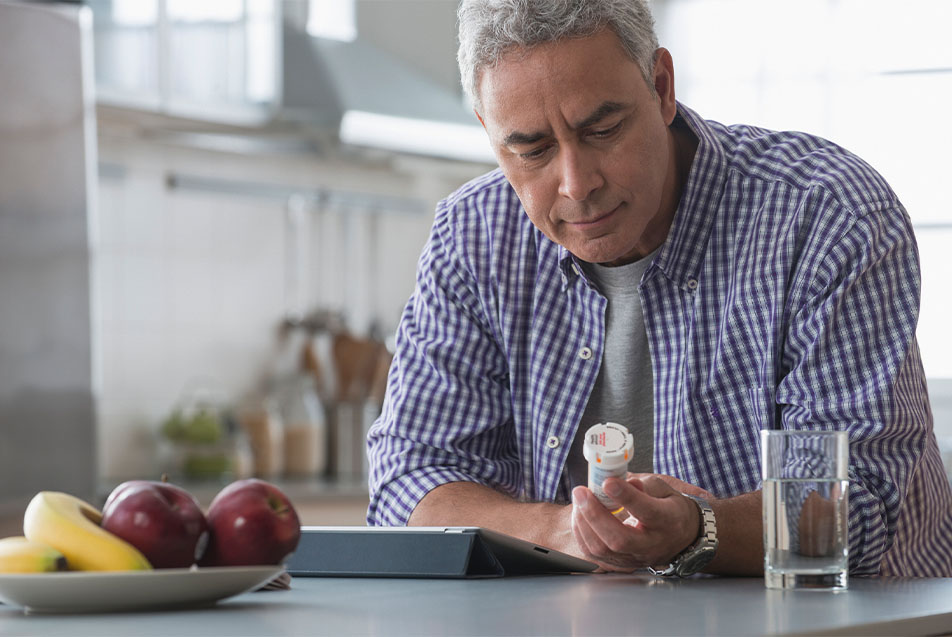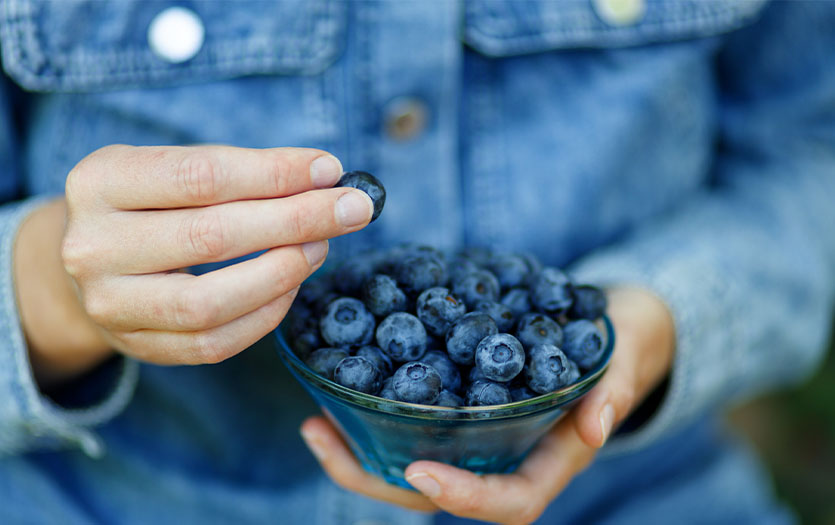
This post was written by Alissa Keillor, PharmD, Parkview Health.
Have you ever been told to take your medication on an empty stomach or to take it with food? Hundreds of medications have food-related dosing instructions. This is because foods have the ability to change how your body responds to certain medications. It is important to understand this issue, so you can get the most out of your treatment, while preventing unwanted side effects.
How medications and foods interact
Eating food triggers multiple physiological changes in the stomach. These physiological changes can affect the amount of medicine absorbed from the stomach into the bloodstream. Certain medications should not be taken with food because food can decrease or delay the amount of drug that gets absorbed. However, other medications need to be taken with food, or certain kinds of food, in order to work better or to have fewer side effects.
Take these medications with food
A common side effect of some medications is an upset stomach. Non-steroidal anti-inflammatory medications like ibuprofen, naproxen and aspirin are examples of medicines that may cause an upset stomach. These medications may have fewer side effects if they are taken with food.
Other common medications to take with food include:

Avoid food with these medications
Some medications are not absorbed well if there is food in your stomach, making the medication less effective. It’s best to take the following medicines on an empty stomach (an hour before a meal, or at least 2 hours after one):
- Thyroid replacement medications (e.g., levothyroxine)
- Medications used to treat bone loss (e.g., alendronate, ibandronate, residronate)
- Proton pump inhibitors used to treat stomach problems (e.g., omeprazole, lansoprazole, pantoprazole, or esomeprazole)
Other common medications to avoid with food include:

Avoid certain foods with these medications
Some medications only interact with certain types of foods and can change how your medications work. Below are a few common foods that may affect some medications.
- Calcium – Dairy products or other foods that are high in calcium can reduce absorption and therefore decrease the effectiveness of some antibiotics such as ciprofloxacin, levofloxacin, doxycycline and minocycline. Take these medications two hours before or four hours after eating foods high in calcium.
- Vitamin K – Green leafy vegetables that have high vitamin K content, such as spinach, kale and romaine lettuce, can decrease the effect of the blood-thinning medication warfarin. You do not need to avoid eating these foods while on warfarin — just stay consistent with the amount you eat per week.
- Grapefruit – Grapefruit can decrease the ability of the body to process certain medications which can cause side effects. Avoid grapefruit if you are taking atorvastatin, simvastatin or lovastatin to treat high cholesterol, or if you are taking warfarin.
These lists are not all inclusive. Be sure to read the little stickers that are attached to your medication bottle and the patient information that comes with your medication. Also, you can always ask your pharmacist for further advice.
Remember, consistency is vital! Whether you take your medications with food or without, a consistent routine can help get the most out of them. Last, but not least, I encourage patients to be extra cautious around the holidays or during other celebrations, as these are when eating habits tend to change.



